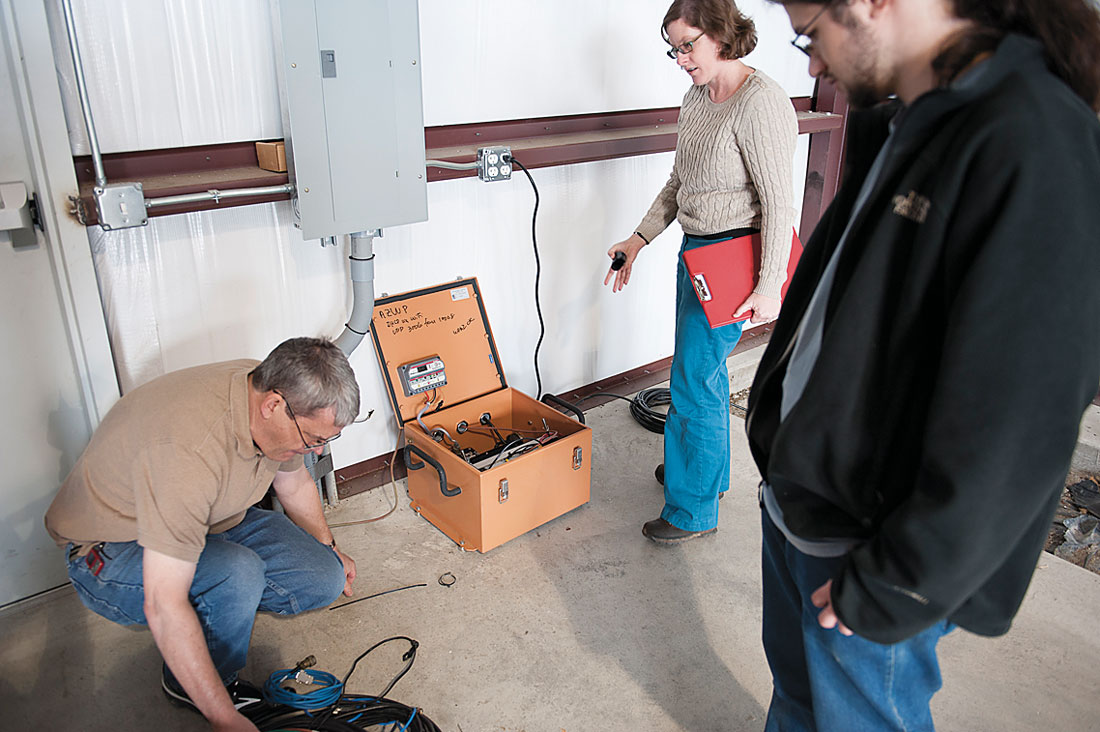Shakeups continue in the gas industry. A large company experienced legal setbacks, and the authors of a study by a local university think they know what caused all of those earthquakes in Azle and Reno that began in late 2013. (Hint: It wasn’t plate tectonics.)
On April 21, Nature Communications published a study by Southern Methodist University concluding that a shift in pressure in a water table that straddles a fault line beneath Azle caused the dozens of earthquakes that began in November 2013 but have since largely subsided. The shift was attributed to the removal of enormous volumes of water from the ground during fracking. As the pressure lowered on one side of the fault line, two waste-water injection wells nearby were pumping millions of gallons of water into the ground on the other side, increasing that area’s pressure. “Causal Factors for Seismicity near Azle, Texas” blamed the shift for the quakes.
In June, the Texas Railroad Commission, which oversees oil and gas production in the state, will hold hearings on the injection wells and, if deemed necessary, revoke those wells’ permits.
Last week, while testifying before the state’s Energy Resources Committee, members of the SMU team discussed their results and requested funding for additional sensors to better monitor seismic activity not only in Azle but across Texas.
Fort Worth’s Sharon Wilson, the Texas representative of the Oil and Gas Accountability Project and a well known anti-industry activist, thinks the industry could have done a lot more to have prevented the Azle earthquakes and can always do a lot more to stop future quakes.
“No one has more information about that fault and other fault lines than the oil and gas industry, but they won’t share it because it’s proprietary research,” she said. “Unfortunately, it’s the data that’s needed by the scientists at SMU and the U.S. Geological Survey to make decisions regarding the location of things like injection wells.”
While most of the earthquakes were quite small, several homes and Reno’s city hall were damaged. Despite the study’s conclusions, the industry may not provide any financial relief. Proving that a particular “act of nature” was caused by a single company is next to impossible, Wilson said: “People’s property gets damaged, their property value diminishes, they become emotional wrecks because they don’t know if the next one is going to be the big one, and the gas companies’ reaction is, ‘So what? You can’t prove it, so you’re out of luck.’ ”
Range Resources may also be out of luck. Or running out of appeals. The Fort Worth gas company that’s doing extensive work in the Marcellus Shale in Pennsylvania was dealt a setback in an ongoing lawsuit. Brought in 2012 by a group of families who claim that drilling by Range contaminated their groundwater, damaging their properties, the suit asked for all of Range’s fracking ingredients, arguing that the chemical makeup of the frack fluid is essential to connecting the company’s drilling work to the contamination. Range claimed the fluid was purchased from a third-party supplier and that the chemical composition of the fluid is proprietary. A county judge disagreed, ruling last year that Range was responsible for obtaining the recipe from the manufacturing company and turning it over during the discovery phase of the suit. Range appealed, but a couple of weeks ago, a three-judge panel of the Pennsylvania Superior Court declined to hear the appeal. It is expected that Range will now appeal to Pennsylvania’s Supreme Court.
“They’ll stall it for as long as they can, but this ruling could be groundbreaking,” said Ron Gulla, a former member of the oil and gas industry who has become an outspoken critic. “No court has ever ruled that a gas company has to give up all of the chemicals in their fracking fluids until this case.”
Now Range has more problems. Several years ago, Parker County residents Steve and Shyla Lipsky sued them for contaminating their water well, based on the findings of environmental scientist Alissa Rich. Range countersued, claiming the three had conspired to defame the company. A court of appeals ruled last year that there was no basis for the conspiracy claim and severed Shyla and Rich from the lawsuit. Range appealed, and the court ruled unanimously against the company.
The lawsuit kept Rich from talking about the case for nearly five years, hampering her business. “I am very happy with the court’s unanimous decision that I was not a conspirator,” she told the Fort Worth Weekly. “On the other hand, for a company to threaten you to the point where you are silenced for five years because you can be buried financially — and where other scientists are cowed, knowing that the same thing could happen to them — well, I’ll leave it at that.”
Rich admits she’s hesitant to discuss the ruling or the case further. She has not been given the green light by her attorney yet. While Rich and Shyla are no longer part of the Range lawsuit, Steve can still be sued for defamation as an individual.












